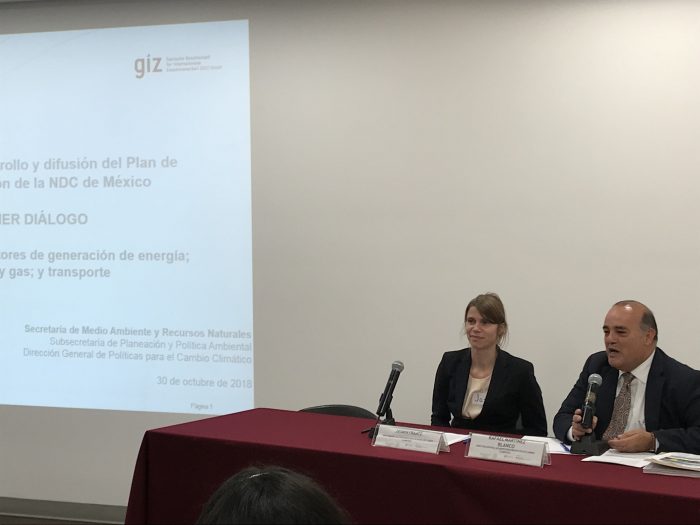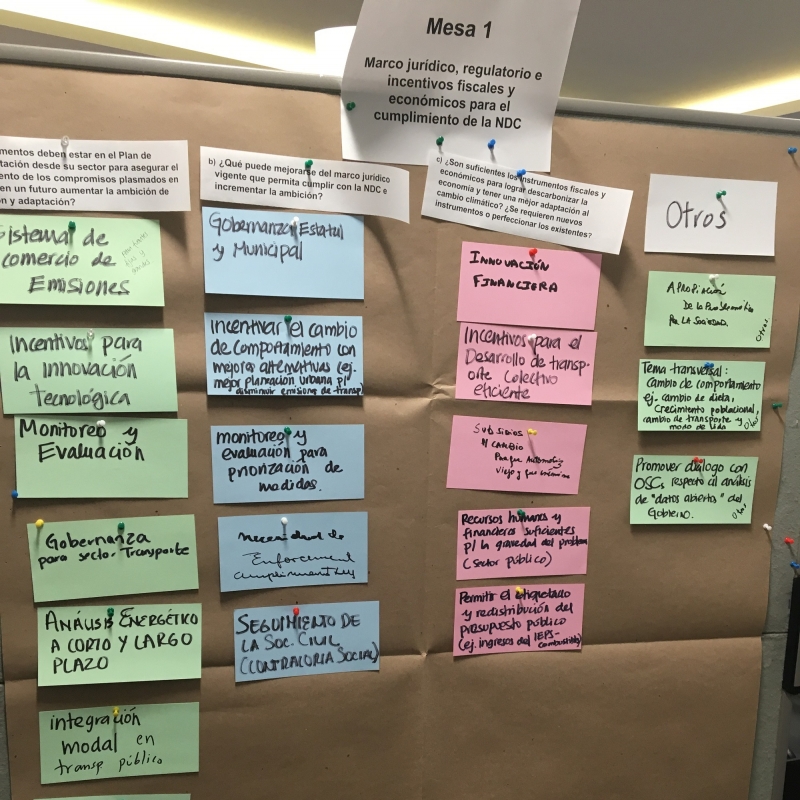The Mexican-German Climate Change Alliance of the Deutsche Gesellschaft für Internationale Zusammenarbeit (GIZ) GmbH helped the Ministry of the Environment and Natural Resources (SEMARNAT) develop four dialogue tables aimed at defining the content and narrative of Mexico’s Nationally Determined Contribution (NDC) Implementation Plan. The sessions were held from October 29 to November 2 at the SEMARNAT offices.
The four dialogues included key actors from the following sectors: electric power; oil and gas; transport; agriculture and livestock; Land Use, Land-Use Change and Forestry (LULUCF); residential and commercial; industrial and waste management. They focused on Ecosystem-based Adaptation (EbA) and on adaptation in the social sector and of productive systems.

These dialogues helped establish a space for reflection, analysis and debate with experts representing the strategic sectors of the NDC. Through the dialogues, a narrative was presented, debated and agreed on for the NDC Implementation Plan, the government instrument that will lay the foundation for an implementation route to 2030. This route is crucial to addressing the urgency of taking mitigation measures that ensure the earth’s temperature does not increase by more than 1.5°C.
The first dialogue, held on November 30, 2018, focused on the mitigation contributions of the most important sectors—transport, power generation, and oil and gas—to the national inventory of greenhouse gas (GHG) emissions.
A diversity of issues were addressed. In the energy sector, participants highlighted the need to continue with the substitution of heavy fuels, such as the replacement of oil with natural gas; expand the energy reform to achieve a greater penetration of clean energy, self-supply and distributed generation; continue reducing fugitive emissions; and improve the mechanisms for the capture, storage and use of CO2.
With respect to the transport sector, there was consensus that the NDC should include guidelines to eradicate the importation of used vehicles, return to using suburban and interstate trains; apply and update emission and energy efficiency standards, as well as climate incentives to meet targets; and take measures to mitigate black carbon emissions.
Among the most relevant suggestions made by the sector representatives were to promote the inclusion of the value chain in the oil and gas sector; improve coordination between government levels and in the design and implementation of sectoral programs so that the goals of the NDC are met and expanded; include civil society organizations; ensure respect for human rights and the inclusion of gender perspectives in all actions proposed in the Implementation Plan; and promote equal opportunities among the Mexican population. Other important issues addressed were the need to strengthen communication between the technical and administrative areas of institutions at all levels, continuously update the subsectors involved in order to increase mitigation ambitions and achieve effective climate change adaptation.



